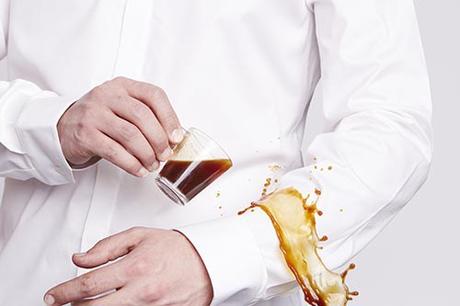 Together with Sébastien François, Pauline Guesné has founded Le Lab, a brand selling shirts made from INDUO®, a fabric they have recently developed. What is so special about INDUO®? No more sweat rings! That is right, the shirt we've all been waiting for is now on the market. How did the idea of the INDUO® fabric come about?
Together with Sébastien François, Pauline Guesné has founded Le Lab, a brand selling shirts made from INDUO®, a fabric they have recently developed. What is so special about INDUO®? No more sweat rings! That is right, the shirt we've all been waiting for is now on the market. How did the idea of the INDUO® fabric come about? Pauline Guesné: Sébastien, my cofounder is very sporty. One day, on a Sunday, he was climbing and while his mind was wondering, he started to think about the work waiting the next day. He wished his workwear was as efficient as his sportswear to manage sweat. How great would it be to be able to take off his jacket when he was hot? To not look like a mess when was in a rush? To never feel self-conscious of any potential smell?
If sportswear had evolved, so could day to day clothing. So he started to look for an existing solution. Among the very few options he could find, the fabric never met his expectations: it felt like plastic, looked weird and/or was a nightmare to maintain. This is how he decided to invent a fabric that would solve sweat - and while we are at it stain - problems but that would also be comfortable and hardly noticeable.
How did it develop?PG: We integrated the European Centre for Innovative Textiles (CETI) which happens to be located in the North of France. We got inspired by existing technologies in the military, medical and sport fields. In total, it took us 2 years of research to develop and finally patent our technology.
What is INDUO® today?PG: INDUO® is a high-end shirting fabric that resists stains and perspiration.
It has only been on the market for a year but is already well distributed in Europe, especially among tailors. We are, for instance, working with the largest made-to-measure brand in Europe, Atelier NA. We are also distributed by premium ready-to-wear brands like Labfresh in the Netherlands.

PG: INDUO® fabric is made of cotton. Its special properties can be explained by the combination of two qualities:
One, repellency. The fabric is hydrophobic and lipophobic and thus repels liquids
And two, breathability. The cotton helps disperse perspiration to prevent underarm rings and the odors often associated with them.
Amazingly, these characteristics change nothing in the fabric's hand and actually make it more appealing to the touch.

PG: Before we could start selling fabric, we needed to prove the efficiency of our technology and the need of the market for our product. The only way to do this was to produce shirts and have people wear them. So we started our own brand Le Lab. It was an instant hit.
We could have stuck to that but we wanted our technology to kind of 'change the world' and for that we needed to spread it widely. We wanted everyone to be able to benefit from INDUO®'s technology while buying from the brand they like, with the cut that fit them and the size they are used to, in the store they like to visit. So we decided to sell the fabric to other brands and close Le Lab.
Between INDUO® and Le Lab, what is your forecast for future fashions?PG: During the last few years, we observed 4 tendencies
- Innovation of style: futuristic designs with metallic pieces, lights, etc.
- Connected garments: able to be locate, to monitor vital functions and so on.
- Innovation of production: with 3D printing, the place where you buy is the place where you produce. No more product travelling around the world from Asia to Europe to be manufactured. No more stocks. No more production delay.
- Innovative fabrics.
The first tendency is just the normal evolution of fashion. The 3 last tendencies however are about to change the world as we know it. We strongly believe the innovative textiles will soon become the norm. The reason why they will spread is that they bring benefits without changing anything to consumer's habit. It's a win-win. In order to contribute to that trend, we are already working to develop new and even more innovative fabrics in our lab!
Thank you!Fraquoh and Franchomme
P.S. We want to hear from you! What do you think of Pauline's innovative fabrics? Would you wear such a shirt? What other innovations would you like to see happen? Share your feedback, questions or thoughts in the comments below! For more articles on style, fashion tips and cultural insights, you can subscribe to Attire Club via e-mail or follow us on Facebook, Twitter or Instagram!

